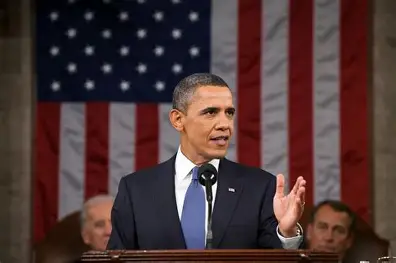Obama Criticizes US Response to Charlie Kirk Killing
By Isha - Sep 17, 2025
Barack Obama criticizes the federal response to the killing of conservative activist Charlie Kirk, highlighting a deepening "political crisis" in the U.S. amidst heightened partisanship. He takes aim at President Trump's handling of the situation, warning of the risks of further inflaming divisions. The shooting has exposed deep political polarization, with concerns over the implications for America's stability and global credibility.

Image via Wallpaper Flare
Former President ,[object Object], has sharply criticized the federal response to the killing of conservative activist ,[object Object],, calling it a reflection of a deeper “political crisis” in the United States. Obama’s comments come as the nation struggles with heightened partisanship and social unrest, adding weight to growing concerns over the country’s political stability. His remarks directly targeted President ,[object Object],’s handling of the situation, suggesting that the administration’s approach risks inflaming divisions rather than fostering unity.
The controversy intensified after President Trump vowed to crack down on what he described as “radical leftists.” Critics argue that this framing weaponizes partisan divides, further entrenching hostility between political factions. Obama countered that such rhetoric does little to address the core issues of violence and unrest, and instead may escalate tensions already running high across the country. For many observers, the tragedy has become less about one incident and more a flashpoint for the broader struggle over America’s political and cultural future.
The shooting has underscored the deepening polarization in U.S. politics, with leaders and communities alike split over how to interpret and respond to the killing. Analysts caution that the cycle of blame and retaliation could embolden extremist elements, undermining democratic institutions and the prospects for constructive dialogue. The bitter exchange between Obama and Trump exemplifies how even national tragedies are being filtered through a hyper-partisan lens, leaving little room for consensus or collective healing.
Beyond domestic politics, experts warn the turmoil could have geopolitical consequences, as allies and adversaries alike monitor how the U.S. handles internal unrest. Prolonged instability, they argue, risks weakening Washington’s credibility abroad while fueling narratives of democratic dysfunction. As the investigation into Kirk’s killing continues, the larger question remains whether America can navigate its divisions without sliding into deeper political conflict.


